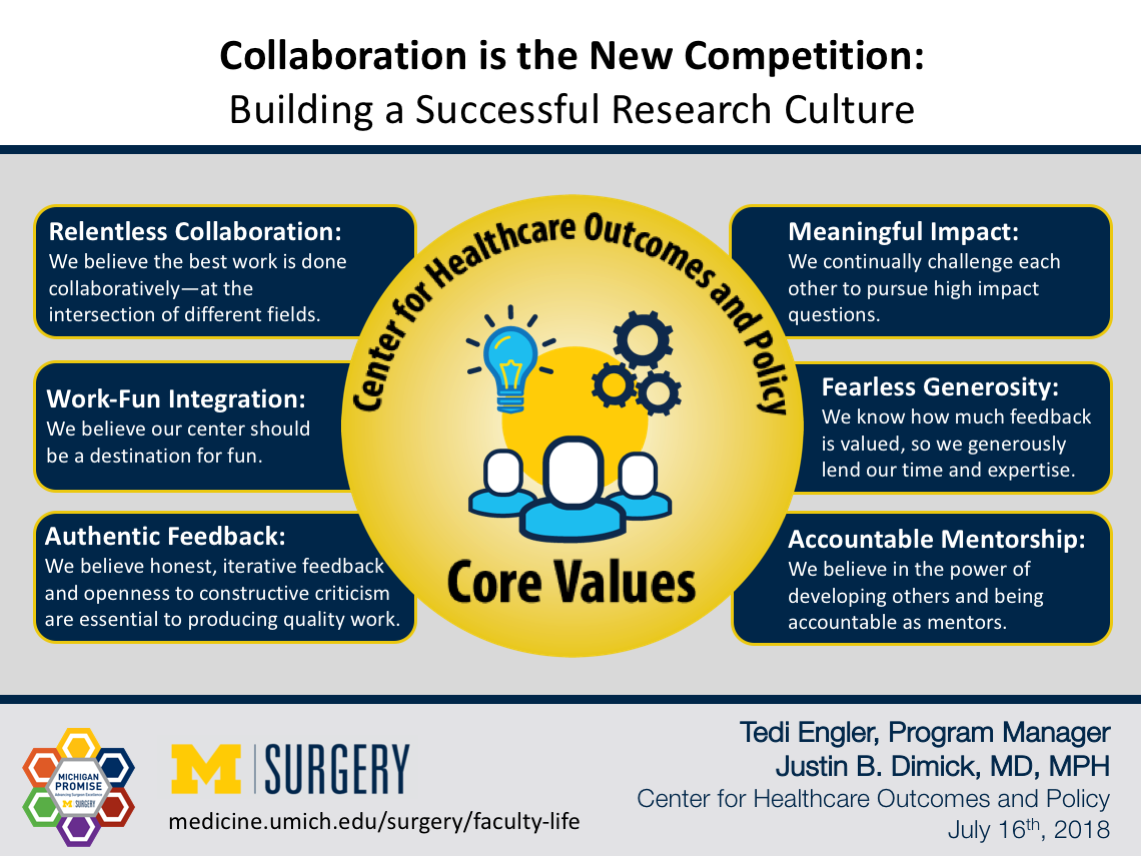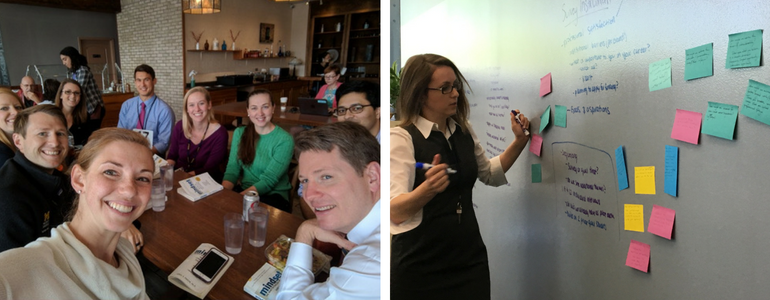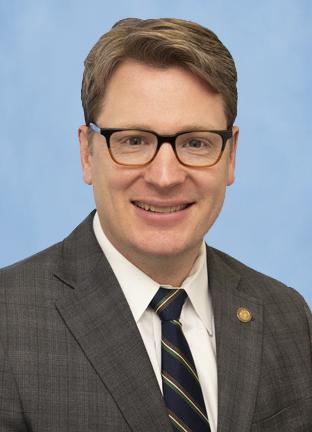
CHOP is housed within the Institute for Healthcare Policy and Innovation (IHPI) and includes a large group of health services researchers, many of them surgeon-scientists. Together, this group studies the health policy and quality of acute and specialty care (e.g., hospital-based care).
Within our center we have a strong tradition of intentional career development and mentoring. We focus on skill development for a broad range of learners, from those beginning their academic careers (students, postdoctoral fellows) to those learning to compete for extramural funds (junior faculty). We firmly believe that any past success we have achieved, and our ability to continue to help our members achieve their goals, is dependent on a unique culture.
Culture is generally defined as “how things are done around here”, and its development is often an organic process that is both invisible and powerful at the same time. Relying on an implicit understanding of our culture, however, creates a risk that it may erode over time or not be reliably passed along to new members of the group. Given the importance of culture to our mission, we recently decided to make our core values more explicit so that we can make sure we are living them more consistently—which inspired the current blog post.
As a group, we identified the following values that our members are demonstrating when our organization is at its best. We then went on to identify the actions we can take to demonstrate those values.

Relentless Collaboration
We believe the best work is done collaboratively—at the intersection of different fields. We strive to continually enhance cognitive diversity to enrich our environment.
How we cultivate this value:
- We deliberately invite research collaborators from other fields to join every project, combining physicians, economists, anthropologists, sociologists, and others to create optimal team expertise for each study.
- We co-locate with each other, allowing both physician and non-physician members of our group to interact frequently. We are also adjacent to other research groups, which facilitates creating interdisciplinary teams.
- We ensure that our trainees are working with and learning from experts in other fields in order to gain skills necessary to engage in deliberate cross-discipline collaboration.
Meaningful Impact
We continually challenge each other to pursue high impact questions. We discourage “one-off” research projects—each research idea considered on its own merits, but also by how it contributes to a narrative and longitudinal body of work with greater impact. We continuously hone our research narratives because we believe clear thinking leads to higher impact work.
How we cultivate this value:
- We encourage surgeons to think bigger than their own specialty, e.g., broader policy questions that apply to not just surgery but all health care.
- We have weekly internal workshops for all faculty and fellows on writing clarity and narrative development. These focus on drawing out each individual’s passion and drawing out the highest impact questions in that area.
- We celebrate and prominently display examples of high-impact work published by our members.
Authentic Feedback
We believe that honest, iterative feedback and openness to constructive criticism are essential to producing high quality work. We believe that we are successful in peer review and study sections, because we have already learned from the feedback of internal colleagues, who are often tougher critics than the external reviewers themselves.
We are cognizant of how we give and receive feedback. We are enormously grateful for our colleagues’ insights, and graciously accept their feedback because we know our colleagues have our best interest in mind. We also work to flatten hierarchies and lower the threshold for bi-directional feedback.
How we cultivate this value:
- We conduct weekly seminars where researchers bring early stage work to receive early feedback in raising the impact and quality of the question. The focus is on iterative improvement rather than criticism. All researchers participate and present their work, regardless of seniority, so that gracious acceptance of criticism is modeled for our trainees.
- We encourage ad-hoc drop-ins. Our doors are always open and we welcome interruptions to provide feedback on a “bite size” piece of work (e.g., introduction, abstract).
- We create psychological safety by focusing on the individual’s trajectory and we emphasize working on self-improvement and not competition with peers (i.e. “Have I improved my skills since last year?” instead of “How do I compare to my peers?”).
Fearless Generosity
Because we know how much feedback is valued and how seriously it is taken, we generously lend our time and expertise. We feel a shared responsibility for one another’s growth and success. A self-perpetuating cycle has emerged in which we are all supporting one another by giving what we can and receiving what we need to do our own best work. We believe in an abundance mentality, that there is enough room for everyone to be successful, and there is no sense of entitlement. We share credit broadly because we fundamentally believe research is a team sport.
How we cultivate this value:
- We openly share our previous grants, papers and statistical code through a central repository made open to any research team member.
- We have transparent discussions at the outset of projects to define roles and responsibilities and set expectations.
- We offer anyone with the desire to participate and commitment to contribute opportunities to join project teams—we believe in inclusivity.
Accountable Mentorship
We believe in the power of developing others and being accountable as mentors. This means committing to our mentees success and helping them launch on a career trajectory consistent with the mentee’s goals.
How we cultivate this value:
- We expect mentors will commit to weekly meetings with their mentees. At nearly all costs, meetings are kept ensuring a regular routine of communicating.
- We actively sponsor our mentees beyond projects and manuscripts and support their professional development and career trajectory needs.
Work-Fun Integration
We believe our center should be a destination for fun. We spend a significant portion of our days at work, with our colleagues. We believe it’s important to make these interactions fun—and members are more likely to show up for weekly seminars if they are both educational and fun. We believe our work is better when it is fun and strive to create an engaging environment.
How we cultivate this value:
- We laugh at ourselves and celebrate our quirks.
- We liberally share humorous stories to make teaching points.
- We provide food to bring people together for weekly scheduled meetings.
At the Center for Healthcare Outcomes & Policy, we are proud of the culture we have built. We believe in life-long learning and innovation. We have chosen to adopt an attitude of abundance because we believe that success does not need to be rationed. We look to our colleagues as resources, not competition. We turn to each other to forge collaborative partnerships that strengthen our teams. We focus on the little everyday things that strengthen relationships within our group. We are taking this opportunity to codify our values as a group. As we bring on new fellows and faculty every year, we’ll turn back turn back to these values we collectively agreed upon and re-focus on the actions we need to take to achieve continued success.
Article by Tedi Engler (Twitter: @tediengler) and Justin B. Dimick, MD, MPH (Twitter: @jdimick1)


Justin B. Dimick, MD, MPH
Contact Us
Reach out to join the conversation or to learn more about how to implement the Michigan Promise. Connect with the Department of Surgery or our faculty on Twitter to share your ideas or get in touch with the Office of Faculty & Resident Life to schedule a Michigan Promise presentation at your institution. You can also fill out our Michigan Promise Inquiry Form with any questions or comments.
Department of Surgery
2210F Taubman Center
1500 E. Medical Center Dr.
Ann Arbor, MI 48109
Phone: 734-232-5528
Email: [email protected]
Twitter: @UMichSurgery
Hashtag: #MichiganPromise

